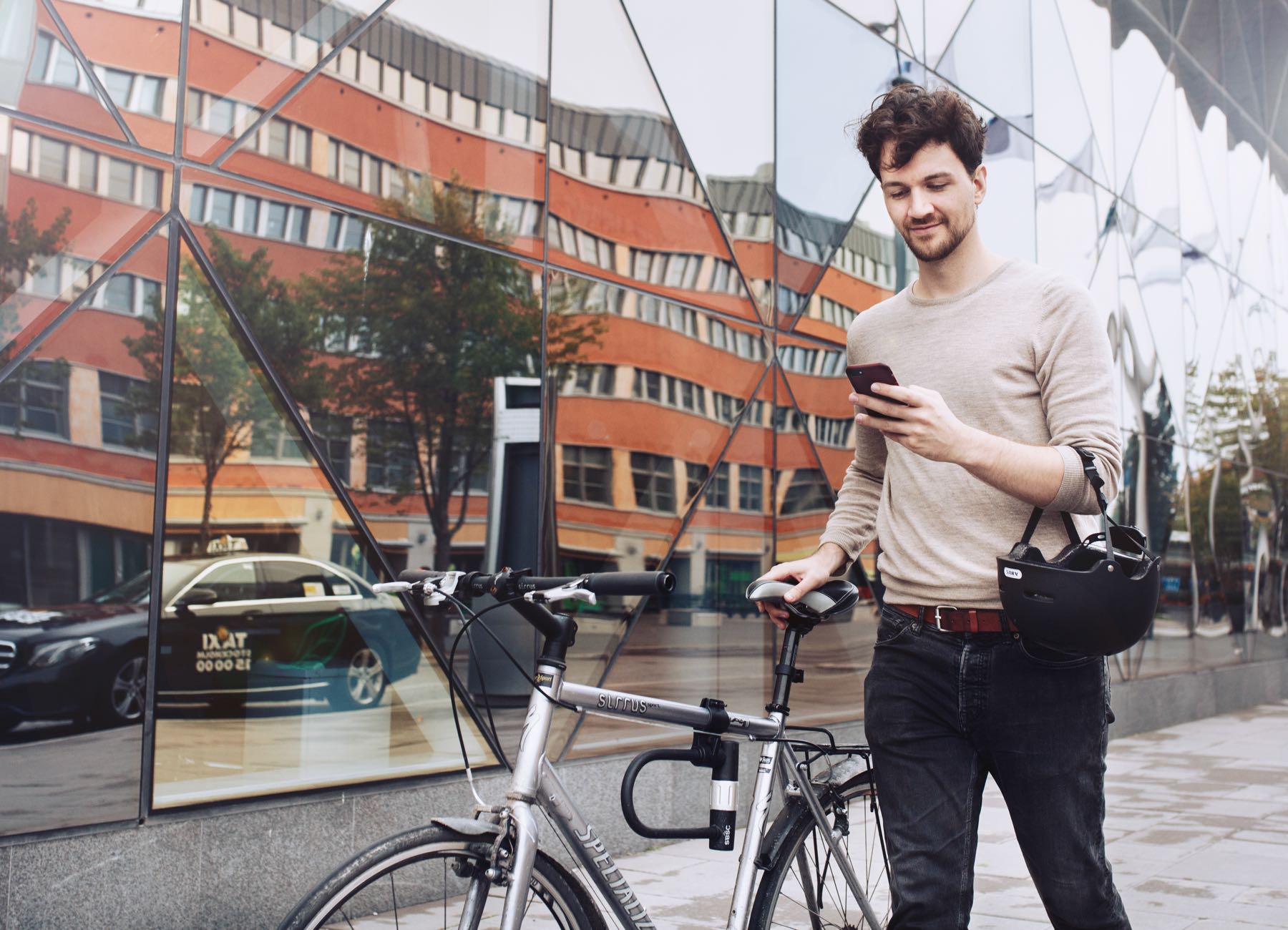
Improving the nation's health – one step at a time
Getting more people moving and getting Sweden healthier
70% of the Swedish population believe they are sufficiently active on a daily basis, but one expert puts the actual figure closer to 7% – and this is in a country which is consistently ranked as one of the top ten most healthy countries in the world. Together with Länsförsäkringar AB, we’re getting more people moving and getting Sweden healthier.
According to the Public Health Agency of Sweden, just 30 minutes of physical activity a day can have a huge impact on an individual’s health. That doesn’t mean working out at the gym or going running on a daily basis, sedentary exercise such as walking can make all the difference for a longer, healthier life.
30 minutes of physical activity a day will:
- reduce your risk of dying of heart failure by 24% (70% if you do more physical training for 30 minutes a day)
- reduce your risk of suffering from Alzheimer’s disease by 24%
And it’s not just long-term health that is impacted when you are more active. Back, muscle and joint problems can also be reduced. Additionally, exercise is a recommended form of treatment for people suffering from stress, depression and other forms of mental health disorders1.
Once the facts are laid bare, it’s difficult not to motivate yourself to jump off the bus one stop earlier and walk to work in a morning or to climb stairs rather than taking the lift.
Armed with this information, in a Daresay Design Sprint with Länsförsäkringar AB, we explored ideas and concepts before developing a prototype that would encourage people to become more active on a daily basis. The result was an app, which we then turned into a “market-ready” beta version for a large test group of users.
In beta testing, activity increased once people began using the app
Lev Friskt
The Lev Friskt (Live Healthy) app is designed for those of us that think we live an active life but don’t quite make the daily minimum activity levels prescribed by the Public Health Agency of Sweden (although it can be used by everybody).
It’s an all day activity-tracking app with a unique scoring system and a tips section on how to become more active. The beta app gathers data such as number of steps taken and stairs climbed directly from the Apple Health app (which is always live on iPhones) and converts them to activity points. It also awards points for things such as standing at work or doing the weekly shopping.
To get people enthused when they start using the app, the initial daily target is purposely set below the recommended daily activity level. After five consecutive days of accumulating the minimum number of points, the target increases. In total there are five different activity levels. Progressively increases targets in this way helps people stick to their new activity routines. This is particularly important since it generally takes at least two months for an activity to become a habit.
To keep people motivated and move to the next activity level, Länsförsäkringar AB plants a tree in Africa on behalf of every user that reaches 1000 points a day (one level above the recommended 30 minutes) for five consecutive days. A gamification feature also allows people to compete with friends and colleagues or even compete for their county – users can compare their performance to people in their network at any time.
What have we found out so far?
Since we launched the beta app we have been able to prove that given the right tool and level of motivation people will increase their level of activity. When we compared people’s data – specifically the amount of exercise they did before the app versus what they do now – we found that over 70% are now more active.
We tend to overestimate how active we are
We also found that people tend to overestimate how much they exercise. When you download the Lev Friskt beta app the first thing you’re asked to do is fill in some personal details such as your height, age and weight. Then you’re asked a question not commonly asked in activity/health apps – How far do you walk per week and how much other exercise do you do? By comparing the answers with people’s actual activity (logged in Apple Health) we could identify a trend of overestimation. The simple fact is that we think we move more than we actually do. Therefore having a tool that helps us to move more for the good of our health becomes even more important.
Why is this important for society?
Lack of activity doesn’t just come at a personal cost to us as individuals, it also costs society a considerable amount. The “Production Losses and Healthcare Costs Report2”, puts the direct costs of healthcare due to physical inactivity at over EUR 70 million and the loss of production to Swedish organisations at around EUR 500 million.
By working proactively to reduce these costs through digiitalisation, considerable savings can be generated and people will live longer. This seems like the perfect reason for an app like LEV FRISKT.
1All cases are different. You should never reduce or replace your medication for exercise before consulting with your doctor.
2Björn Lindgren, Professor in Health Economics and Head of the Center for Health Economics, Lund University, Kristian Bolin, Health Economics Researcher